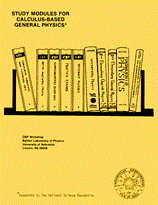Instructional Materials in Physics and Astronomy

Calculus-Based General Physics
Date of this Version
1975
Document Type
Article
Abstract
We, much more than our ancestors, are constantly being bombarded by sound. We hear, and are more or less aware of, music, air hammers, television sets, jet planes, conversation, engines, sirens, etc., throughout the day. A sophisticated audio industry tries to improve the quality of musical sound. At the other end of the quality scale, noise pollution is a serious concern, which probably affects our lives more than we realize.
In order to deal with sound, we should have some idea of what it is. What factors determine whether a sound is pleasing or grating? How is sound transmitted? How much power do our ear drums actually receive when we hear a bird, or a rock band? What determines whether our ears detect a sound; what is the meaning of sound beyond the range audible to a human? These are just a sample of a multitude of physical and physiological questions that one might ask about sound. Not all of these questions will be answered in this module, but you will learn enough to begin finding answers to several of them.


Comments
From Study Modules for Calculus-Based General Physics
Copyright © 1975 CBP Workshop, University of Nebraska–Lincoln.
Reproduction rights granted.